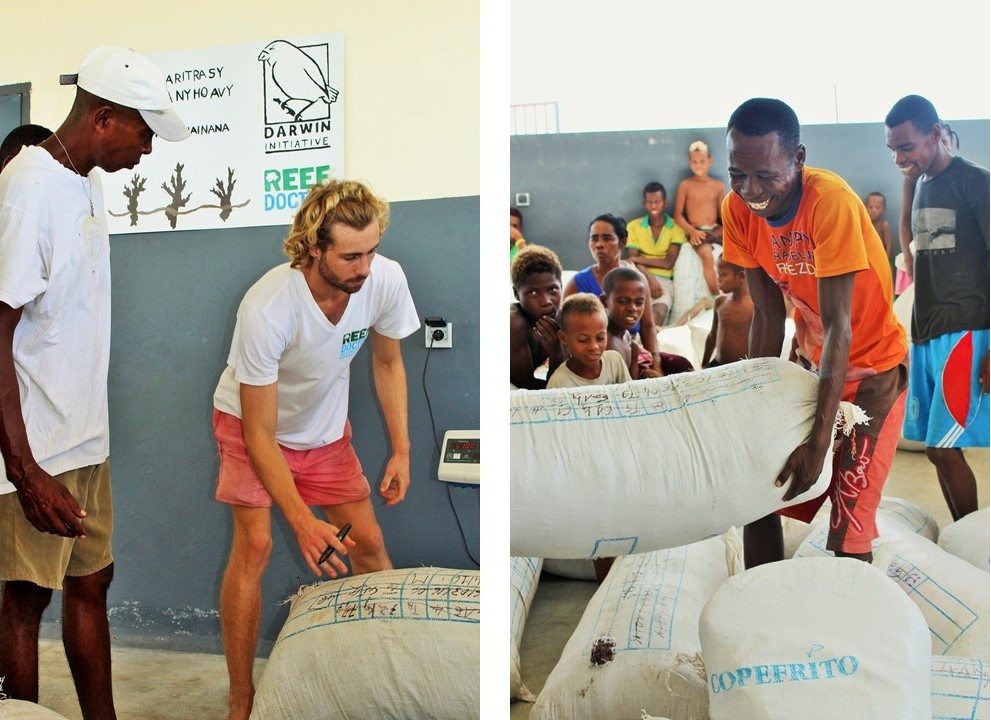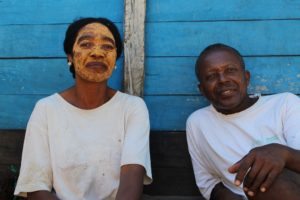Sustainable Livelihoods Project Update
The rainy season is upon us here in Madagascar, and while this is still the dry, drought-riddled southwest, there was just enough rain to hinder seaweed farming operations. Once seaweed has been grown in the ocean, it must be sun-dried for about three days before it can be sold. During this drying process, it is important that fresh water avoids contact with seaweed, as it breaks down the valuable carrageenan inside the seaweed. Farmers in the Bay of Ranobe have therefore been hindered in their attempts to dry seaweed, due to the intermittent rain, and results for the months of January and February reflected this. Just over 4 tons of seaweed was sold in the first two months of the year, valuing 2.5 million MGA (745 USD).
However, we are happy to announce the completion of a large storage facility in the community of Betsibaroke, the biggest seaweed producing village in the Bay. This facility, possible with funding from program partners Fonds Regional pour le Developpement Agricole (FRDA), provides farmers with a safe and secure place to dry and store seaweed, and avoid any future disruptions due to inclement weather. The centre will also act as an aquaculture education centre, meeting place and centralized collection depot for sold seaweed. With a capacity to store 12 tons of seaweed, the centre will be officially opened in March.
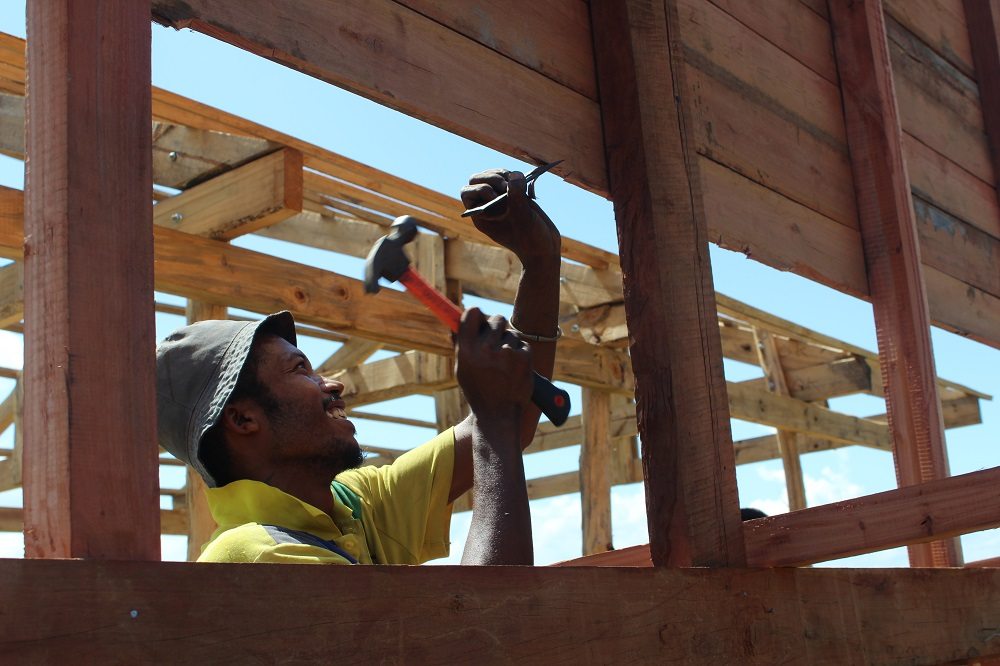
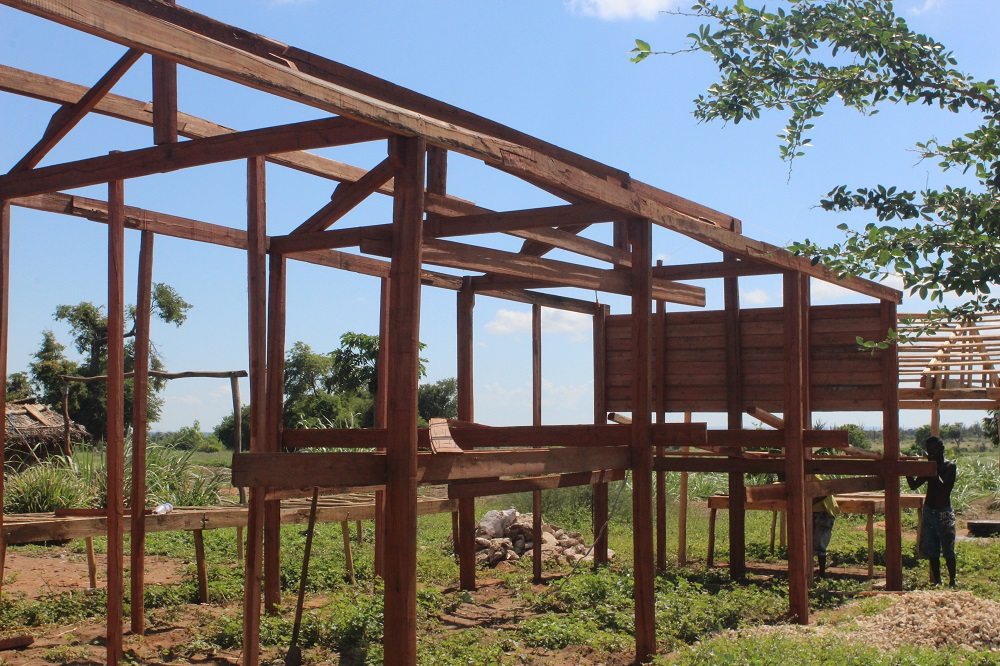
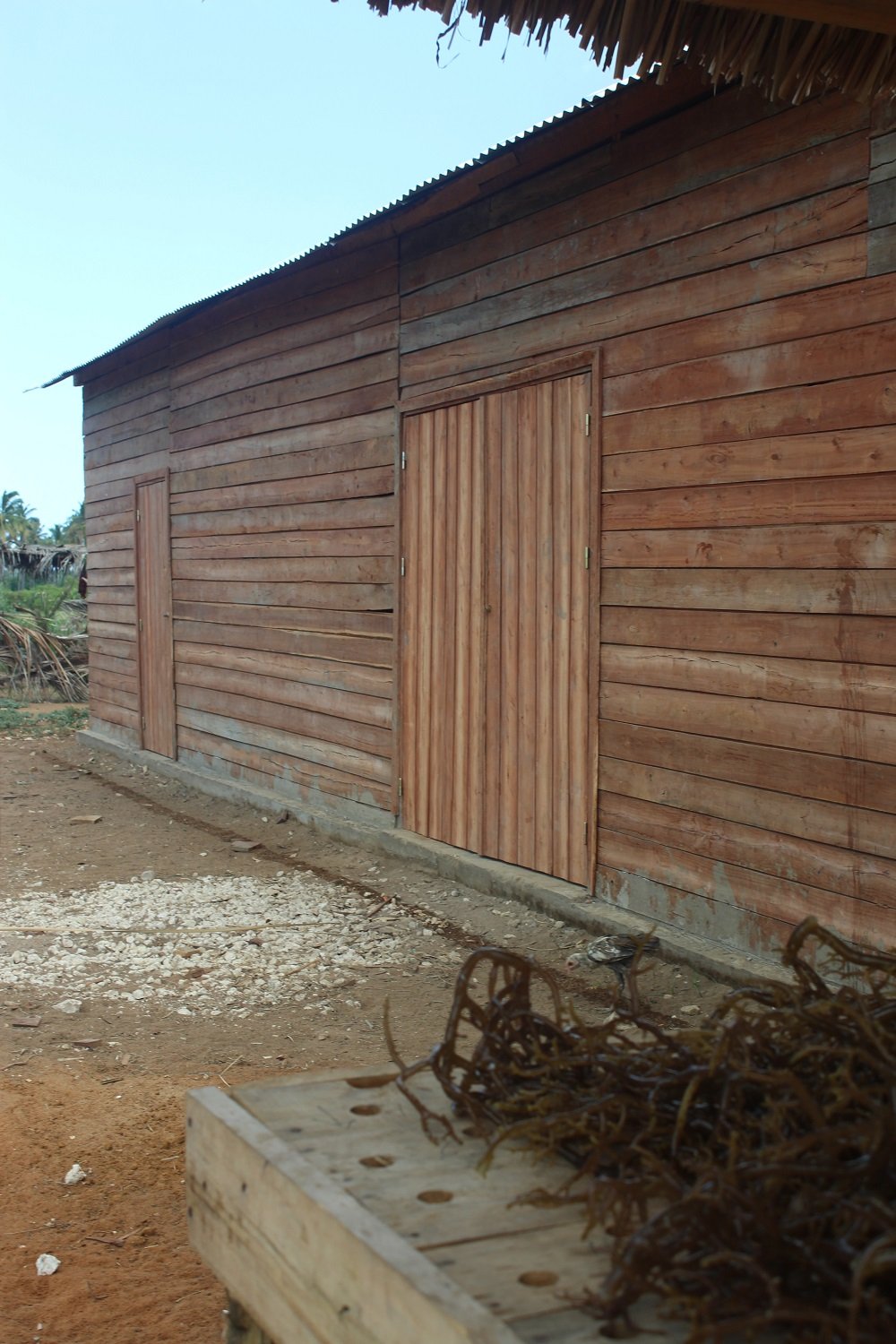
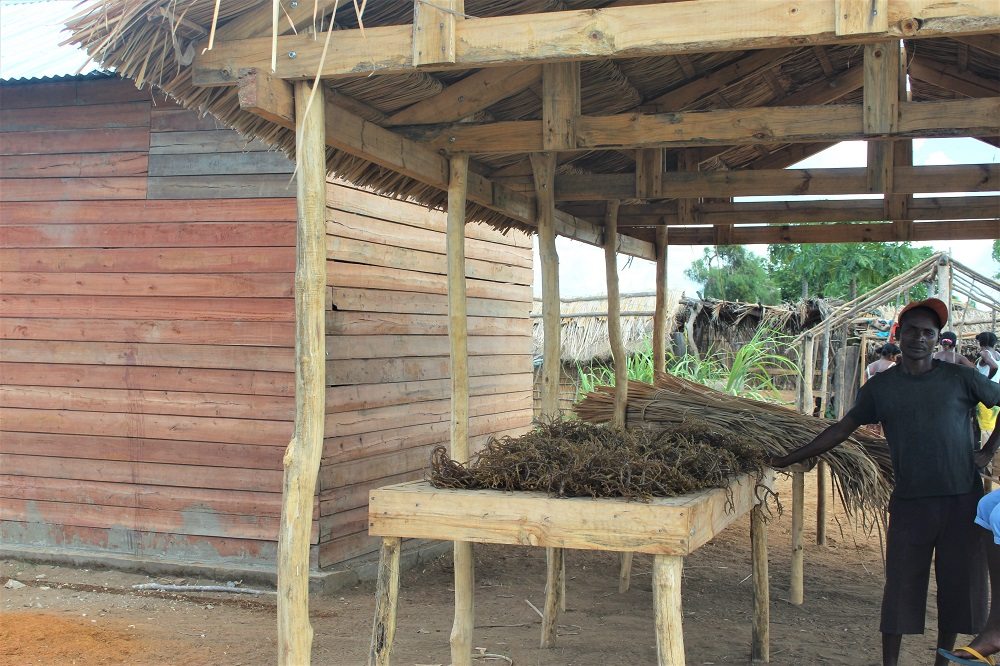
Sea cucumber farming continued to be highly successful in the first two months of the year, with 2,587 sea cucumbers harvested, and 12 million MGA (3,642 USD) generated for the communities involved. On the back of these outstanding results, program partners Indian Ocean Trepang (IOT) have agreed to expand sea cucumber farming activities, and over the coming months we will be almost doubling the number of families involved, with additional increases scheduled throughout the year! In scaling up this sustainable, environmentally-sound method of sea cucumber farming, we can continue to reduce pressure on wild fisheries, replenish natural stocks of sea cucumbers, and provide a meaningful and reliable source of income for local communities.
February also saw the very exciting start of entrepreneurial training for communities involved in the Darwin Initiative-funded Sustainable Livelihoods programme. Farmers from the villages of Ifaty and Amboaboke attended a two-day training course at Reef Doctor on 15th & 16th February, learning basic book keeping skills, financial management and financial planning. This training program, developed by programme partners Conseil Diocesain De Developpement (CDD), provides farmers with the skills and information necessary to convert their aquaculture activities into small businesses, and therefore to maximize their income generating potential. Despite the low level of education, and high level of poverty in the Bay of Ranobe, this training programme offers communities the potential to shape their own future and manage their own marine resources – another step towards independence. Entrepreneurial training is being rolled out to all households in all the villages involved in the project over the coming months.
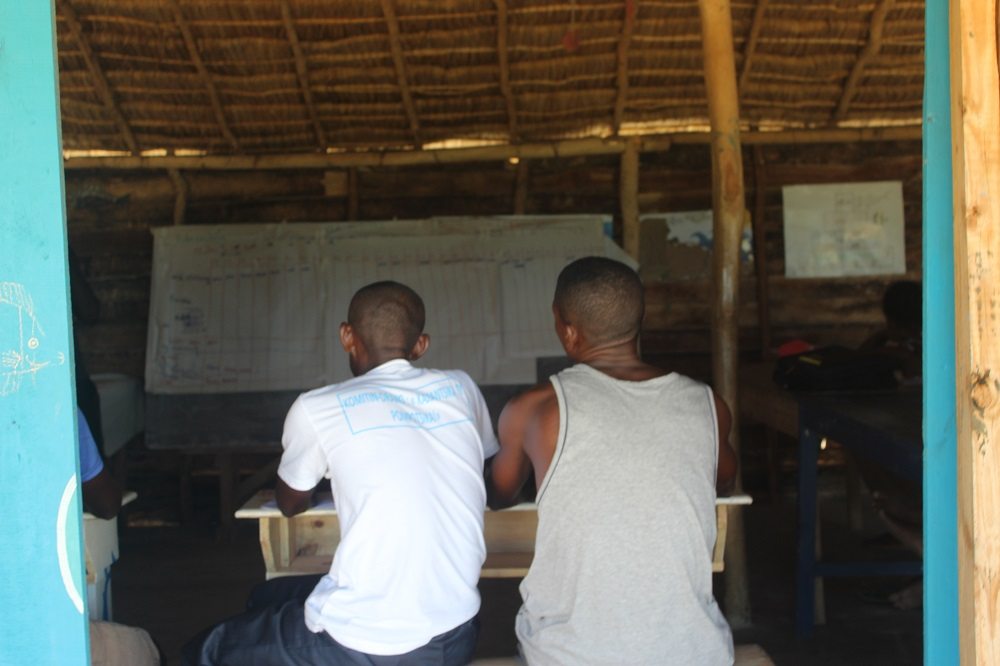
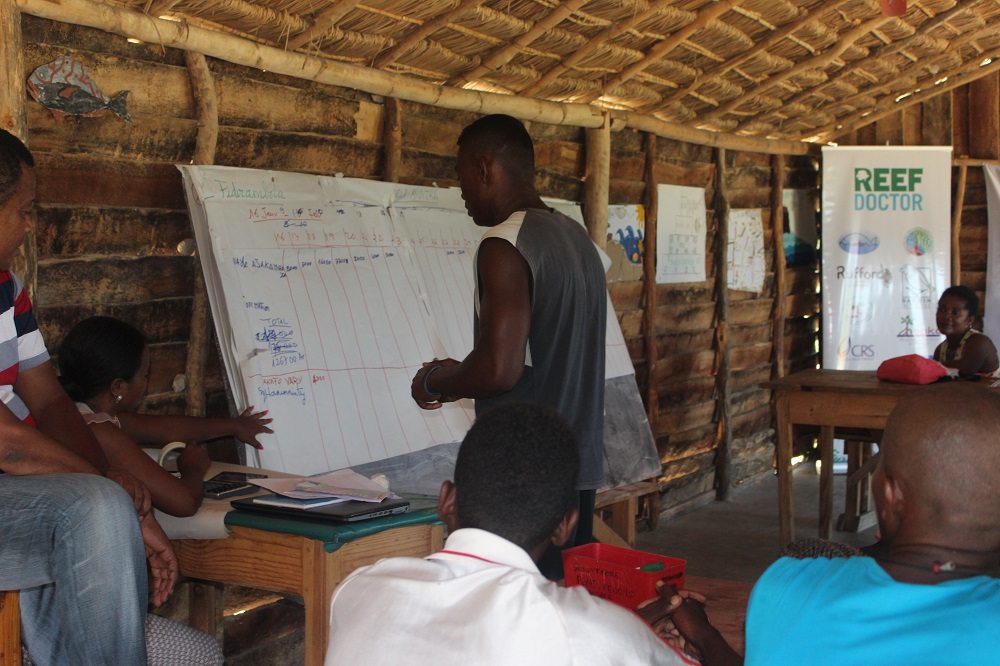
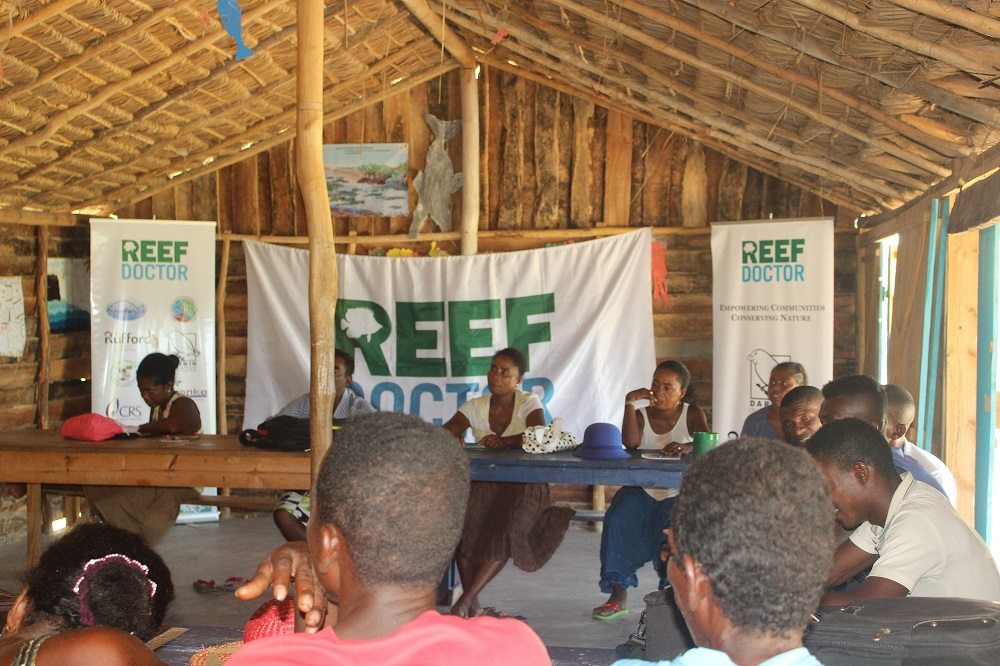
Update by Project Leader Cale Golding and Comms Officer Ivana Rubino
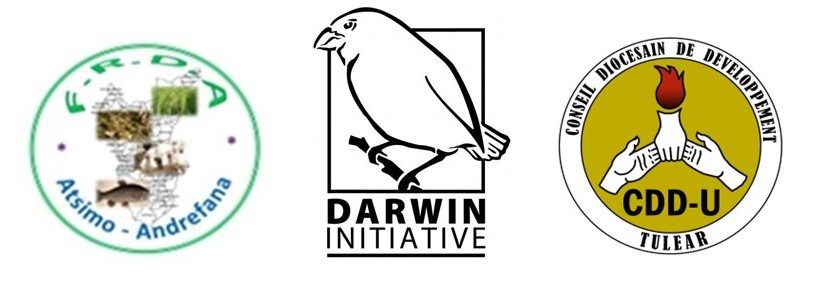

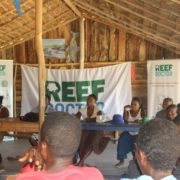
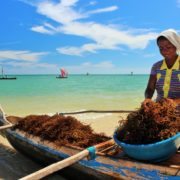
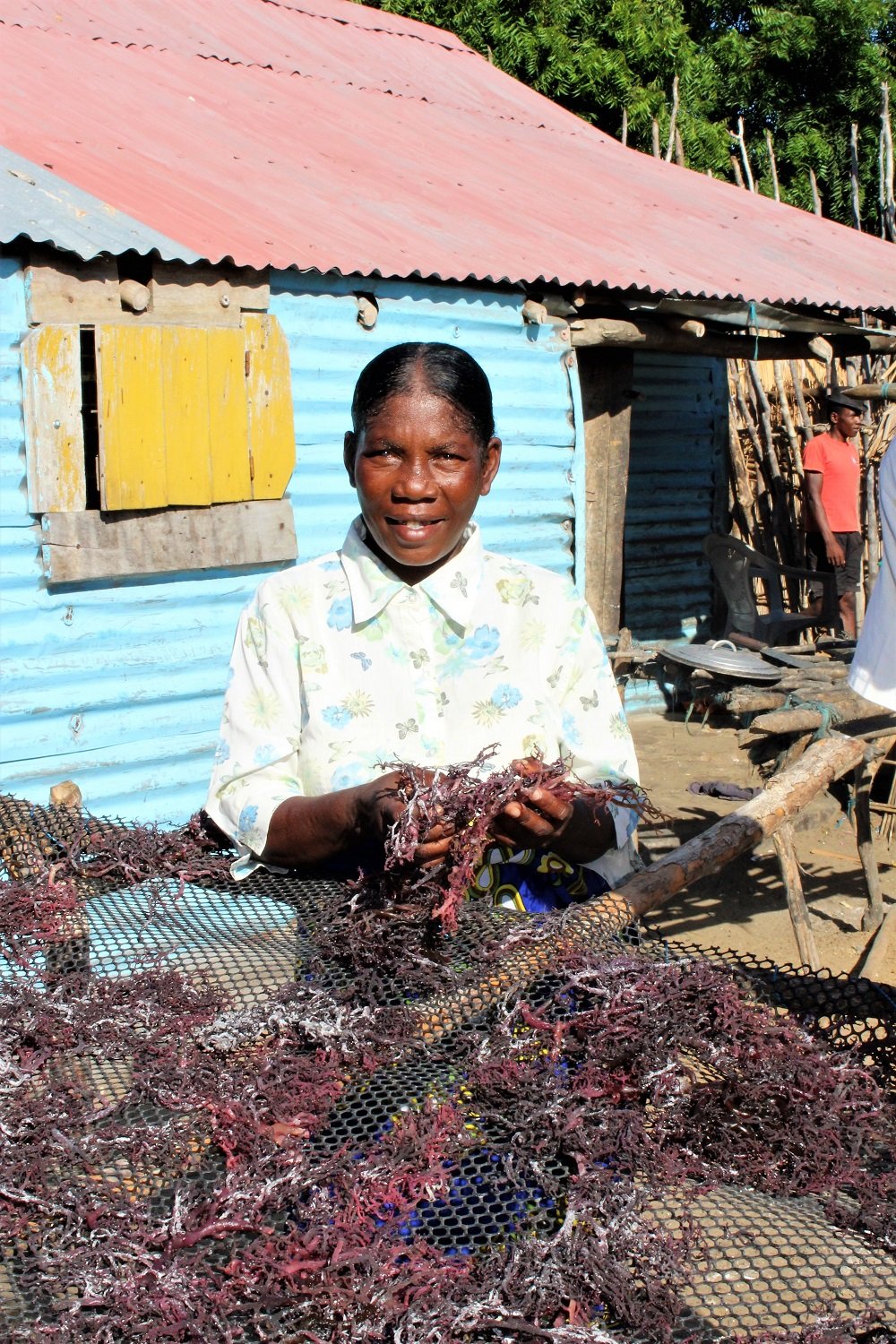
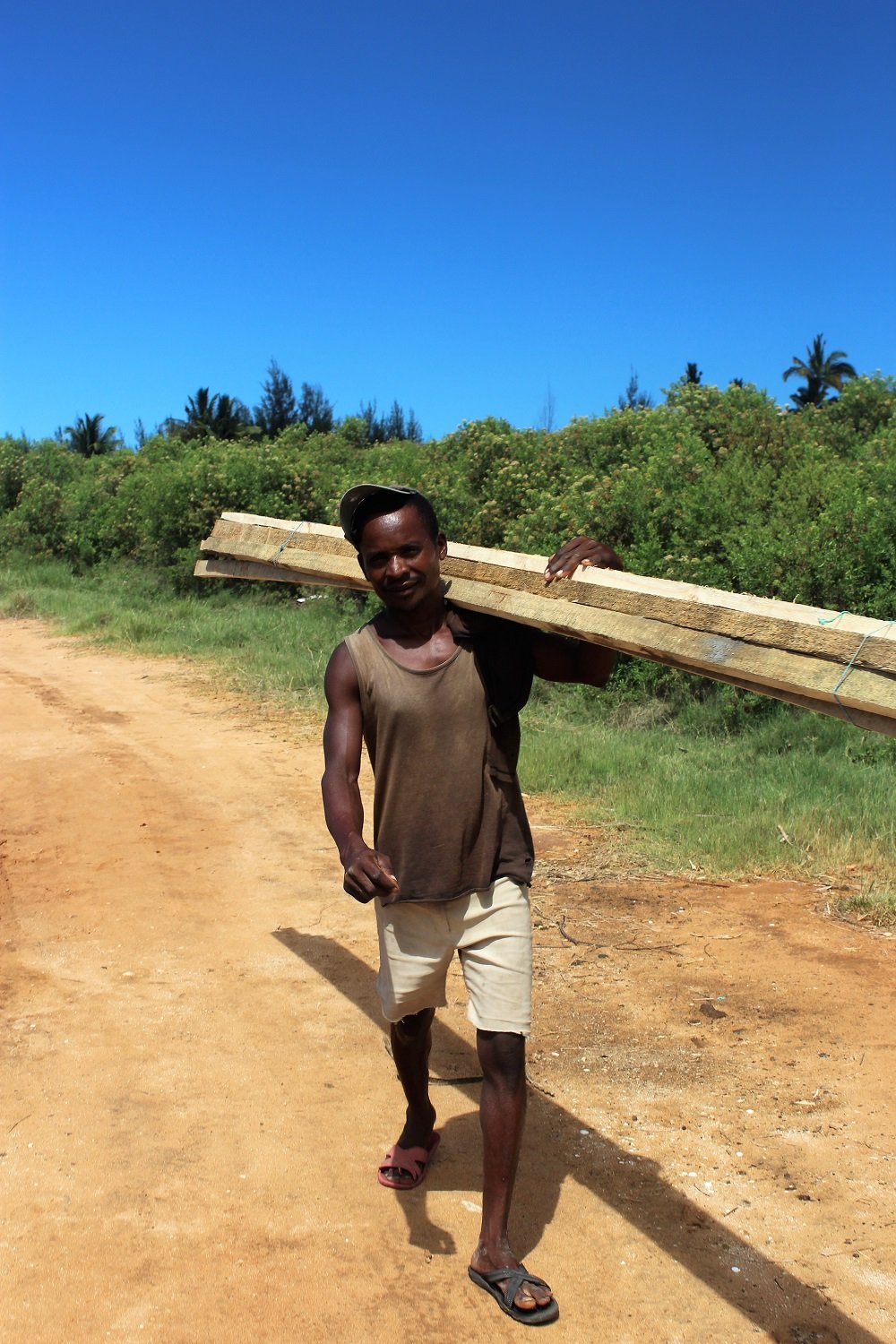
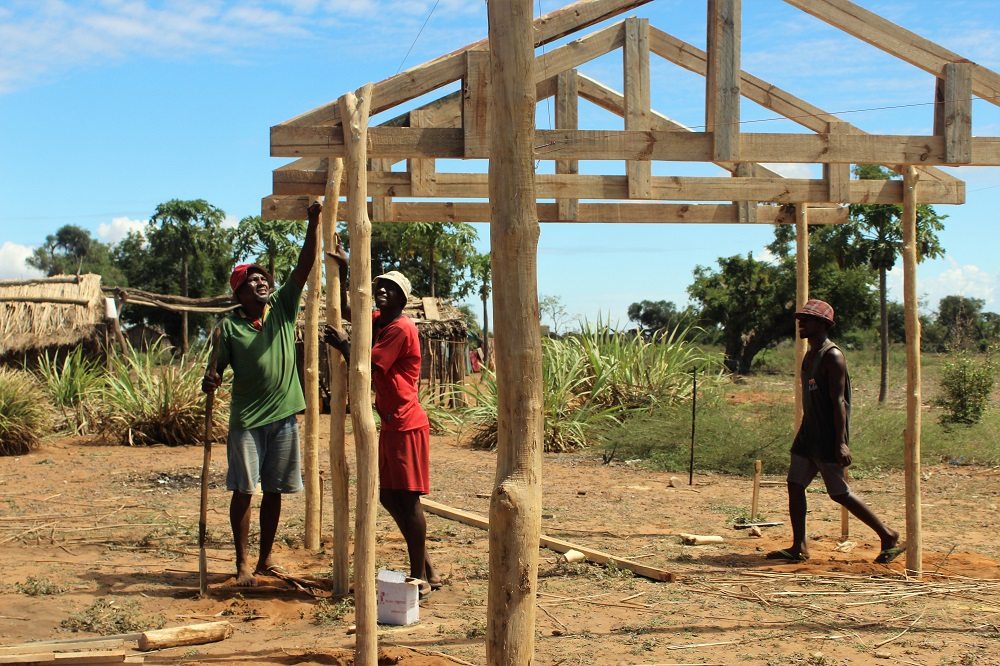
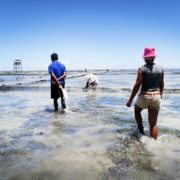
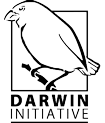 The first half of 2016 has been a busy year for the Alternative Livelihoods team at Reef Doctor, with the
The first half of 2016 has been a busy year for the Alternative Livelihoods team at Reef Doctor, with the 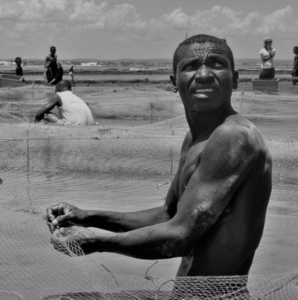 and more sustainable source of income, provides training, start-up materials, access to markets and ongoing support so fishermen can establish seaweed and sea cucumber farms. While there is no conservation ‘silver bullet’, the tie between poverty and resource consumption means that addressing one aspect can influence the other. By transitioning fishermen from being resource consumers to resource producers, participants are empowered to manage their marine resources. As reliance on fishing declines, competition for limited resources is reduced, resulting in greater incentive to provide for long-term management. Diversification of livelihoods and productive, sustainable employment leads into the conservation of marine resources, and is achieving substantial results.
and more sustainable source of income, provides training, start-up materials, access to markets and ongoing support so fishermen can establish seaweed and sea cucumber farms. While there is no conservation ‘silver bullet’, the tie between poverty and resource consumption means that addressing one aspect can influence the other. By transitioning fishermen from being resource consumers to resource producers, participants are empowered to manage their marine resources. As reliance on fishing declines, competition for limited resources is reduced, resulting in greater incentive to provide for long-term management. Diversification of livelihoods and productive, sustainable employment leads into the conservation of marine resources, and is achieving substantial results.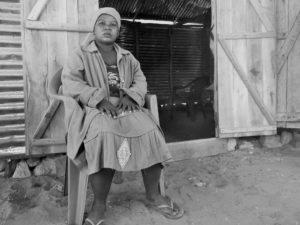 “Do you see that?” asks Seraphine, a sea cucumber farmer from the village of Andrevo as she points to a roll of corrugated iron in her house. “That’s my new roof. That’s from sea cucumbers”.
“Do you see that?” asks Seraphine, a sea cucumber farmer from the village of Andrevo as she points to a roll of corrugated iron in her house. “That’s my new roof. That’s from sea cucumbers”.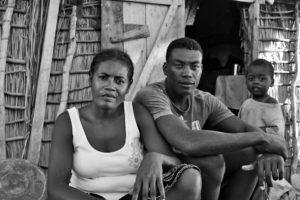 strain of living day-to-day, of not knowing if there will be enough food to eat, is a reality for the majority of people in this region. Productive employment in aquaculture farms is giving quality of life back to the people of the Bay of Ranobe, relieving the daily burden of living in poverty.
strain of living day-to-day, of not knowing if there will be enough food to eat, is a reality for the majority of people in this region. Productive employment in aquaculture farms is giving quality of life back to the people of the Bay of Ranobe, relieving the daily burden of living in poverty.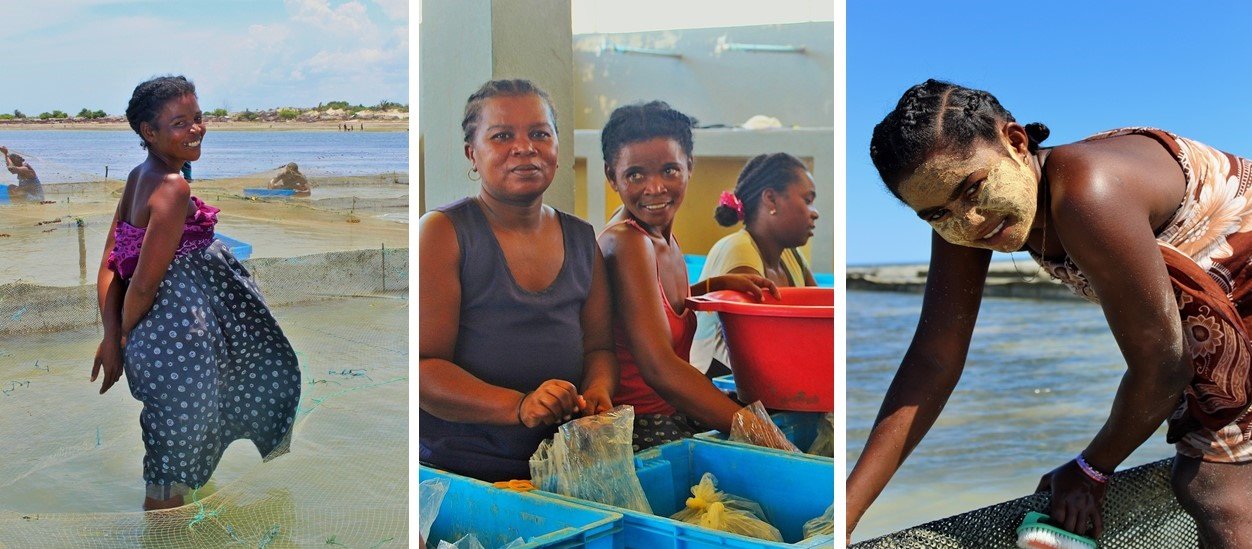
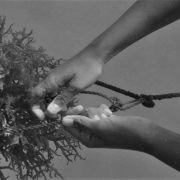
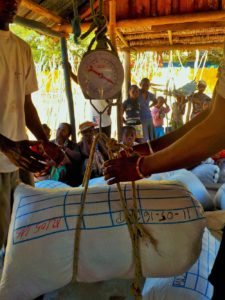 ef Doctor provides to participants in this
ef Doctor provides to participants in this 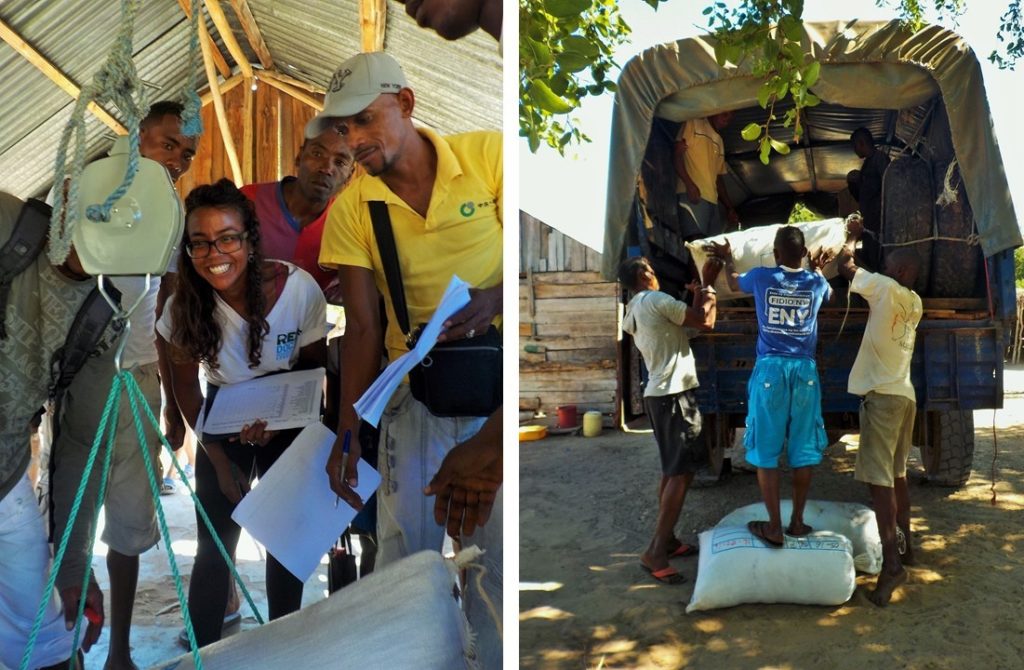
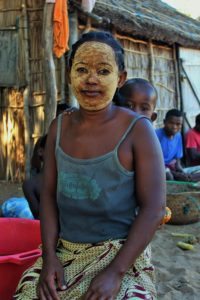 Seaweed Farmers: Melene (25) and Joany (18)
Seaweed Farmers: Melene (25) and Joany (18)